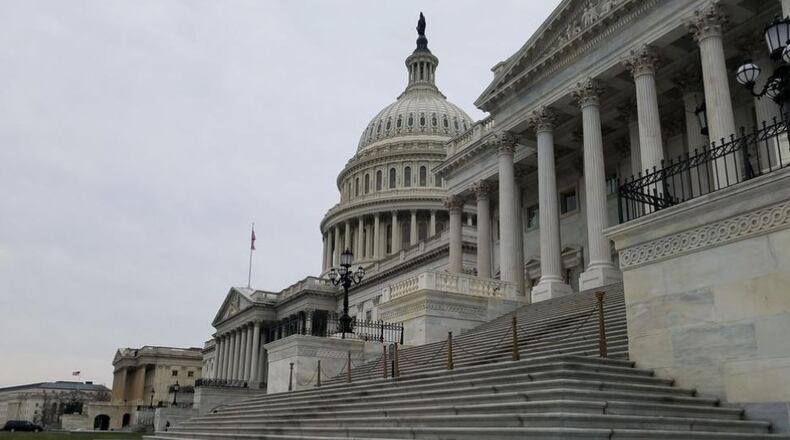The second vote was needed by the House after three minor provisions - including the name of the bill - didn't pass muster with Senate rules on Tuesday night, and were removed from the plan.
The final House vote today was 224-201. The Senate last night approved by bill 51-48. Next stop for this legislation is the President's desk.
"We passed an historic overall of the nation's tax code," said Senate Majority Leader Mitch McConnell. "It will deliver real relief to families and small businesses all across our country."
At the White House, President Donald Trump was more than excited with the developments, reminding reporters that he wanted a bill before Christmas, and now GOP lawmakers were delivering, in what will be the biggest legislative achievement for him in his first year in the Oval Office.
In the final debate on the House floor this morning, Democrats verbally heckled the GOP, saying the bill was a mishmash of flawed proposals that won't help spur new economic growth.
"Today is a very sad day in the history of America," said House Democratic Leader Nancy Pelosi. "This is the worst."
"This is going to be an anchor around your ankles for the rest of your lives," said Rep. Louise Slaughter (D-NY).
"We could call it the Donald J. Trump Inequality Act," said Rep. Lloyd Doggett (D-TX), as Democrats argued in vain that the plan was wrongly skewed in favor of the wealthy.
Democrats voiced optimism that they would be able to capitalize next year on voter anger over the details of the tax bill, while Republicans said once people see more money in their paychecks early in 2018, that would swing support to the GOP.
The President also touted other provisions in the tax bill, including one that will zero out the penalty for not buying health insurance under the Obama health law's individual mandate - that penalty will still be effective in 2018, but will be zeroed out in 2019.
"Obamacare has been repealed in this bill," the President declared.
Mr. Trump also heralded a provision that opens a small slice of the Alaska National Wildlife Refuge (ANWR) to oil and gas exploration. Republicans have pressed unsuccessfully to do that for several decades.
Some of the highlights of the GOP plan include:
+ Seven individual tax brackets of 10%, 12%, 22%, 24%, 32%, 35%, and 37%.
The current individual brackets are 10%, 15%, 25%, 28%, 33%, 35% and 39.6%.
+ Standard deduction almost doubled $6,350/$12,700 to $12,000/$24,000
+ State and local taxes change will only allow you to deduct up to $10,000 for sales, income and property taxes - this is a big change for those who itemize.
+ Mortgage interest deduction limit lowered to $750,000 from $1 million. No change for current mortgages (they are grandfathered in).
+ Zeroes out the individual mandate tax penalty in 2019 under the Obama health law - note the date - not in 2018. Still in effect next year.
+ Does not change tax exemption on reduced tuition awards for graduate students, and employer tuition aid at colleges and universities.
+ Alternative Minimum Tax lives on for individuals, but the exemption limit is increased.
+ Federal estate tax is not abolished, but the plan doubles the amount of the inheritance exemption.
+ Corporate tax rate lowered to 21% - original plan was 20%.
+ Almost all business tax changes are permanent in the GOP bill.
+ Almost all individual tax changes in the bill expire after 2025 (8 years).
If you want to read more about the details of the bill, this is the 570 page explanation that has been put out by Republicans in the Congress.
About the Author

